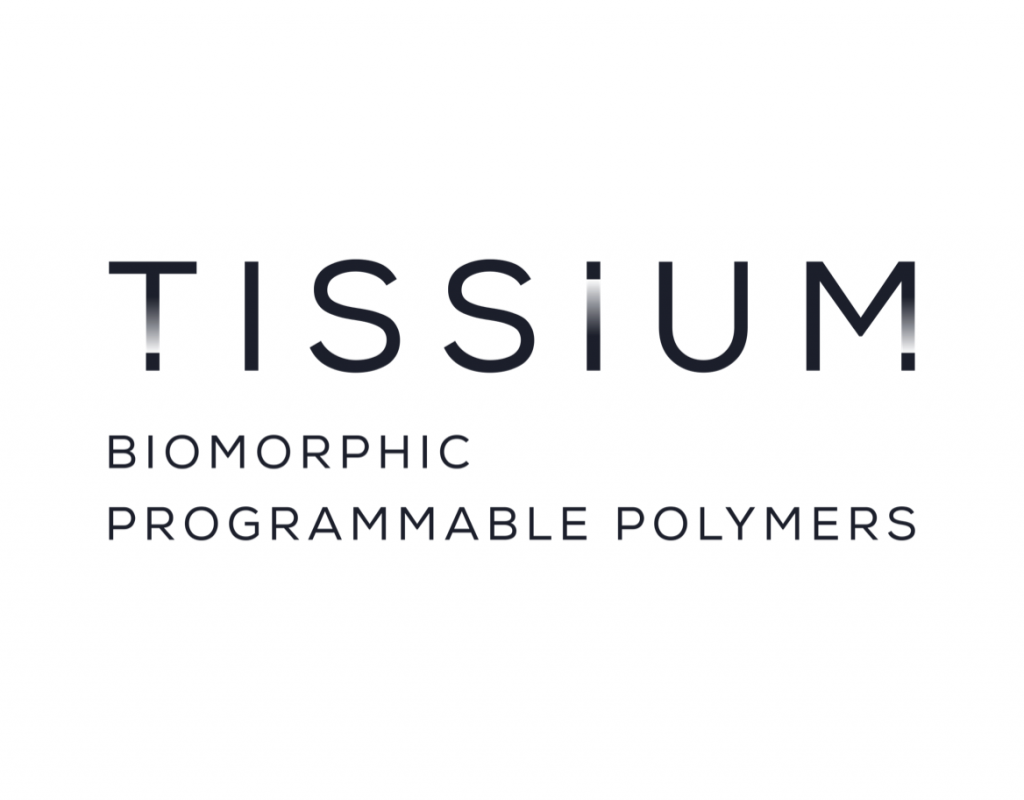Paris, France, September 24, 2021 – TISSIUM, a privately-owned medtech company developing biomorphic programmable polymers for tissue reconstruction, has announced its research has been selected for presentation within the scientific program at the 76th Annual Meeting of the American Society for Surgery of the Hand. The event is scheduled to be held virtually and in-person from September 30 – October 2, 2021 in San Francisco, CA.
TISSIUM will present the latest research on its novel Sutureless Nerve Coaptation System in collaboration with surgeons from NYU Langone, Brigham & Women’s Hospital, and SUNY Downstate Medical Center.
TISSIUM is developing a portfolio of productsthat leverage its unique biopolymer platform based on a proprietary biocompatible, biomorphic and biodegradable material, which is a viscous, light-activated surgical adhesive. This novel material adheres strongly to tissue through mechanical interlocking, making it a highly unique tool that can act as an atraumatic means of tissue repair.
Further, as nerve connectors are becoming an increasingly popular part of the surgical management of peripheral nerve injuries, TISSIUM has developed methods to 3D print its material into a range of off-the-shelf nerve “chambers” that offer unique features compared to traditional nerve connectors, like enhanced transparency, using cutting-edge digital light projection techniques.
“The concept of striving for sutureless nerve repair is critical. Not only because of the difficulty and trauma from sutures, but perhaps to make a more coherent connection to facilitate axonal regeneration,” said Randy Bindra, MBBS, FRACS, FRCS, Orthopedic Surgeon and global nerve repair thought leader.
These exciting results demonstrate that TISSIUM’s next-generation coaptation solution has the potential to improve the quality of nerve recovery, and they also suggest that there is a better, less invasive way of repairing nerves.
About the results:
The presented research consists of an animal study and surgical cadaveric simulations that quantify the potential of a PGSA (poly(glycerol-co-sebacate) acrylate) 3D polymer chamber and PGSA adhesive packaged together as a Sutureless Coaptation System and demonstrate its promise as an alternative to traditional nerve repair approaches such as microsutures, entubulation devices, and/or fibrin glue for strong and reliable sutureless nerve coaptation. Over time, rat nerves repaired with the Sutureless Coaptation System showed enhanced reinnervation and increased associated muscle weight and quality. In cadaver simulation, surgeons considered the sutureless system easy to learn and promising for digital nerve repairs, large diameter nerve repairs and for nerve grafting reconstructions.
About TISSIUM:
TISSIUM, a privately-owned medtech company based in Paris, France and Boston, USA is dedicated to the development and commercialization of products derived from its unique biopolymer platform. The company’s products will address multiple unmet clinical needs, including atraumatic tissue repair and reconstruction.
TISSIUM is developing a portfolio of products that leverage its proprietary family of fully biosynthetic, biomorphic and programmable polymers, which are the foundation of the company’s technology platform. Currently, the Company has a pipeline of seven products across three verticals, including sutureless nerve repair, hernia repair and cardiovascular sealants. Each product is designed to enhance the tissue reconstruction process in a unique way. In addition, the company develops complementary delivery and activation devices for enhanced performance and usability of its products.
TISSIUM’s technology is based on world-class research and intellectual property from the laboratories of Professor Robert Langer (MIT) and Professor Jeffrey M. Karp (Brigham and Women’s Hospital), who co-founded the company in 2013.
